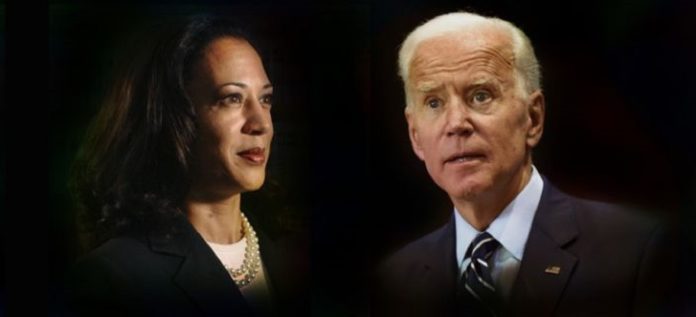Presumptive Democratic presidential nominee Joe Biden pledged months ago to pick a woman as his running mate. Now he’s under increasing pressure to make that pick a Black woman. Biden has no shortage of candidates if he goes that route, among them Sen. Kamala Harris of California, former national security advisor Susan Rice, former Georgia gubernatorial candidate Stacey Abrams, Atlanta Mayor Keisha Lance Bottoms, Rep. Val Demings of Florida and Rep. Karen Bass of Los Angeles.
These women are well known to the public, have good political credentials and are Democratic Party stalwarts. That’s all good, but unfortunately, none of them is perfect. With Donald Trump in possession of the bully pulpit of the presidency, the race is likely to get much tighter, and Biden will need a vice presidential candidate who is a strong draw for the kind of voters essential to his defeating Trump.
He also needs someone who can help make up for a key Biden liability: his age. If elected, Biden will be 78 on inauguration day, the age of average life expectancy for U.S. men. That means his vice presidential pick will be scrutinized carefully for her readiness to assume the presidency should Biden die in office.
Harris has repeatedly been named as Biden’s likeliest choice. She has name recognition, was a top state prosecutor and is a tough campaigner. But, like the other candidates, she also has liabilities. Chief among them, in the era of George Floyd, is her background as a prosecutor. Many Black voters are wary of someone on the prosecutor’s side of a justice system seen as racially biased and have loudly said so. In a Civiqs-Data For Progress poll of battleground states last month, Abrams was the top pick of Black voters, with Elizabeth Warren coming in second, ahead of Harris. And if Black voters are wary of Harris, moderate to conservative independent voters will be wary because she is a California liberal.
Rice has foreign policy experience, a deep Obama administration connection, and name recognition. Unfortunately, part of that recognition can be summed up in one word: Benghazi. The GOP would have a field day hammering her all over again for her alleged failures in the wake of the attack on U.S. diplomatic outposts there in 2012, when Rice was ambassador to the United Nations. Rice also has held no elected office, so she’s an unknown on the campaign trail.
Demings gives Biden a possible leg up in Florida, a potentially crucial state for him. She gets high marks for her stint as Orlando police chief, where she managed to mix law and order with compassion. However, with police practices under a hot glare, her law enforcement background could torpedo her with some Black voters.
Bottoms has a reputation as a tough local administrator, and she has national name recognition from her battle to rein in the scandal-ridden Atlanta Police Department and for standing up to Georgia Gov. Brian Kemp’s bullying attempt to force her to reopen Atlanta schools. The operative word with her, though, is “local.” Running a city and running a vice presidential office are far different things.
Abrams would have been at the center of the VP conversation if she had won the governorship in Georgia, which is fast becoming a key swing state. But she didn’t, which likely makes her a nonstarter.
Bass is a staunch progressive, and the chair of the Congressional Black Caucus. She’s been in the forefront of the charge against Trump’s policy wrecking ball on everything from healthcare to police abuse. Unfortunately, despite Bass’ sterling credentials and political savvy, she would be Cuba-baited to death by Trump and the GOP for her trips to Cuba and alleged softness on the Castros.
In 2020, there’s more on the line for a Black female on the ticket than simply being another first. She’ll be ruthlessly picked apart, scrutinized and vilified by the GOP, drawing far more fire, I suspect, than any other vice presidential candidate in living memory.
Ultimately, any of the Black women on Biden’s short list would give him something of a boost with Black voters, who are essential to his election. But that’s not enough. His pick will need to provide a strong motivation for Blacks to turn out, since a big drop-off of Black voters in 2016 in key states was a big part of why Hillary Clinton lost. And it will also need to draw other voters who may not be incentivized to turn out for a white moderate in his seventies.
For those reasons, Harris should be the pick. She’s tough, experienced, relatively young and progressive. And her background as a prosecutor could help cancel her negatives among voters in the heartland. One more plus is that there’s no risk in losing a Democratic Senate seat, since her replacement would undoubtedly be a Democrat.
Harris or no, a Black woman’s job on the ticket will be to give Biden a real boost. That’s a big assignment, and it ensures that whoever gets the nod will be on the hot seat for the next three months.







